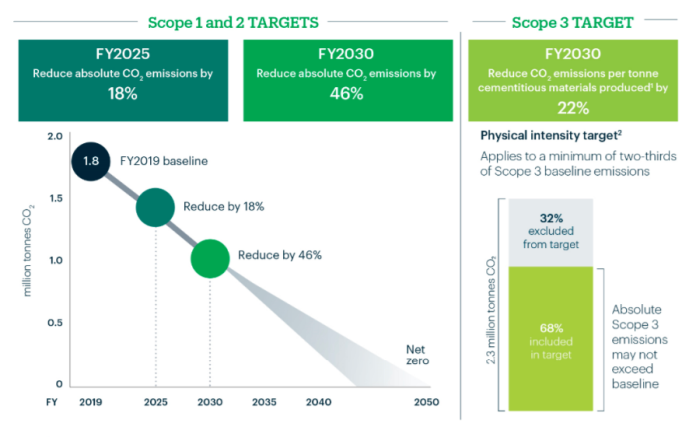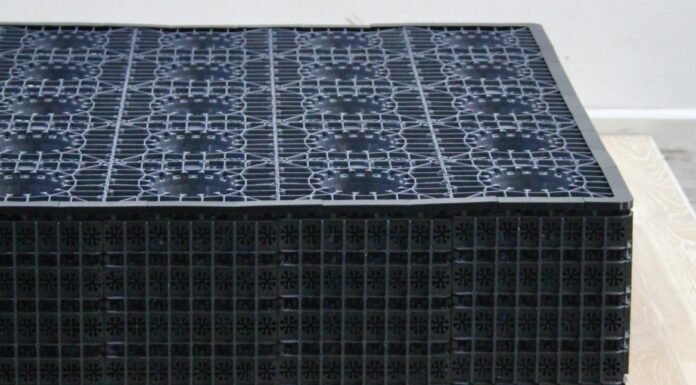
Boral has announced that the Science Based Objectives initiative (SBTi) has accepted its ambitious emissions reduction targets for 2030 as being “consistent” with the levels required to accomplish the Paris Agreement’s goals.
In August of this year, Boral published their emissions reduction targets and pledged to achieve net-zero emissions by 2050, joining the SBTi’s Business Ambition for 1.5°C and the UNFCCC Race to Zero.
Boral’s Chief Finance & Strategy Officer, Tino La Spina, noted that Boral was the first company in the global cement sector to set 2030 science-based targets aligned with a 1.5°C pathway for Scope 1 and 2 emissions.
“As Australia’s largest integrated construction materials company, we believe it is important that we accelerate the transition to a net zero future in the construction materials industry by reducing our carbon footprint and by offering product solutions to our customers to build more sustainable buildings and infrastructure,” Mr La Spina added.
“Receiving SBTi’s approval of our 2030 emissions reduction targets provides independent verification our ambitious targets are aligned with the goals of the Paris Agreement.”
Boral’s 2030 aim of reducing Scope 1 and 2 emissions by 46% is in line with the Paris Agreement’s most aggressive goal of limiting global warming to 1.5°C. The SBTi requirements for value chain goals are met by its 2030 target of reducing relevant Scope 3 emissions3 per tonne of cementitious materials by 22%.
The emissions reduction targets are supported by five important decarbonisation levers, with efforts in each of these levers now in the works. These will see the Company:
- convert to 100% renewable electricity by 2025 and increase alternative fuels at its Berrima Cement kiln;
- increase revenue from its leading lower carbon concrete product line and improve the efficiency of its cement plant.
- reduce transport emissions in its own and contractor fleet
- prioritise lower carbon intensity suppliers, and
- explore and test emerging carbon capture use and storage technologies.
Mr La Spina said that in addition to supporting the global transition to a low carbon economy, these decarbonisation efforts will enhance Boral’s competitive position and support its customers’ sustainability priorities.
“Boral is determined to become a leading innovator in sustainability through decarbonisation of cement and concrete and increasing our contribution to a more circular economy,” he continued.
“We continue to support our customers in their transition to net zero, broadening our range of high-performing lower carbon concrete products to cater for all building and infrastructure applications, and offering Climate Active?certified net carbon neutral concrete.
“We’re excited about the journey ahead, as we focus on delivering future growth while contributing to a more sustainable future.”



















